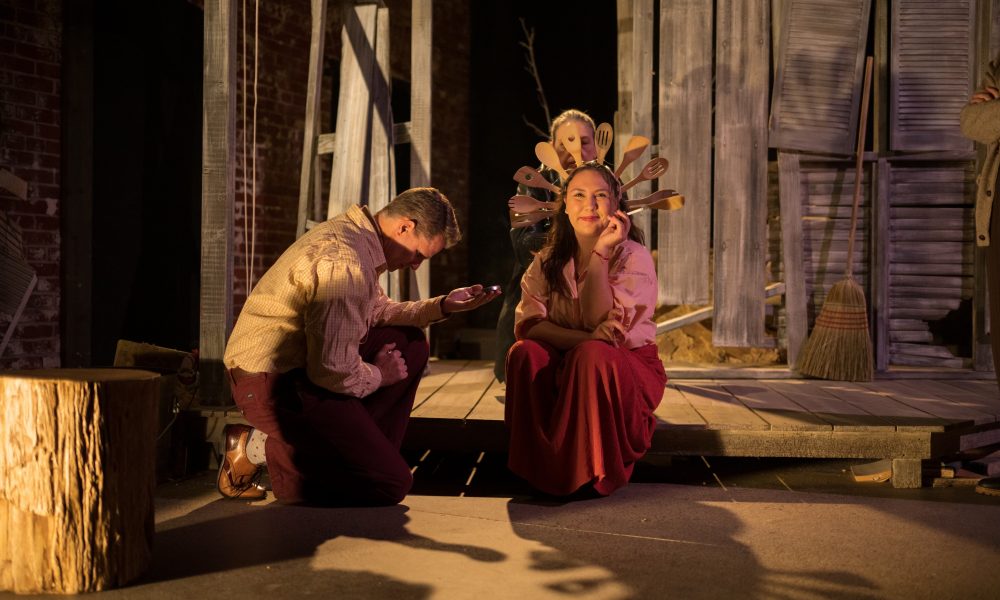

Today we’d like to introduce you to Camila Rozo.
Hi Camila, thanks for sharing your story with us. To start, maybe you can tell our readers some of your backstory.
I was born in Bogota, Colombia, to a very funny, loud, deeply loving family. My aunt Gladis would take me to see cuenteros way past my bedtime, and I was often one of the only kids in the audience. Cuenteros are storytellers in Bogota who gather crowds of people to share an anecdote. I was a sucker for a good tale. I spent a lot of my childhood on my grandfather’s lap, listening to stories he made up on the fly, just for me. The cuenteros’ vulgarity flew right past me, but I was nonetheless completely captivated. This was my first encounter with theater, and it was free; it was entirely accessible to any demographic—perhaps not for a four-year-old—but its success relied on community; that is what has stuck with me all these years.
My mom, older brother, and I moved to Los Angeles to reunite with my father. I was five. It was 2004.
It became clear, rather quickly, that English was far easier to understand than to speak. I spent a lot of kindergarten chasing articulation, something I never had an issue with at home. I knew no quiet, no filter; running into a new language was humbling. It was fairly easy to understand when the kids didn’t want to play with me; they’d say so right in front of me. But when it came time to defend myself, I was at a loss for words. I don’t blame them for not playing with me, though; I was a “Playing Pretend” menace. Almost militant; I was more “playing protagonist.” This is where my love for acting was born, though I’d like to think I am a far more generous scene partner now.
I would find the excuse to perform anywhere. My first time at City Walk, my dad lost me in a crowd and, in his panic, started looking for me and heard my voice on the speakers. He says he found me surrounded by people, and I was singing “Gasolina” by Daddy Yankee, my anthem at the time, apparently.
My parents worked at a relative’s Colombian restaurant in the San Fernando Valley; they now own one in the valley, Sazon Colombia, so I was surrounded by a really large immigrant community. I came across so many different national cultures, foods, accents, and kinds of Spanish that have made their way into my own Latinidad.
I had a Chicano Theatre professor once say, “I came to this country and became ‘Latino’.” And it certainly feels that way; it’s an experience of immediate politicization, and it can radicalize you. It certainly radicalized me.
I can’t point to one instance of injustice that made it all make sense, but I remember the suffocation that came with learning histories of humanity’s cruelty and seeing it reflect in smaller ways how I was treated as a little brown girl. There was no patience for my developing language in kindergarten, where we were all there to learn the mechanics of English. I was asked by children and adults alike if I was related to Pablo Escobar or if I sold and did cocaine. I was particularly offended at the implication that I would be such an incompetent drug dealer that I’d get high on my own supply. Was I selling cocaine or doing it? The American public could never quite figure it out.
TSA was humiliating as a child; it was my personal hell right next to translating my father’s dissatisfaction to the clearly stoned kid at In-N-Out. (You don’t have to know Spanish to know the word pendejo isn’t good.) The pressures of FAFSA’s and translating government forms when I didn’t even know the words in Spanish.
I had a passionate affair between politics and theater, and it was the three of us all the time. I wrote for a social justice magazine in high school while doing theater every semester. I was involved in student government and theater alike. For Pride Month, I was chair of the committee for our “coming out” party inspired by Studio 54; I brought consent workshops on campus; I was VP of the feminism club; and I was Co-President of the Theater Club. LAUSD awarded my high school for an event I helped set up in response to 2016’s presidential election. I was in every theater production from my second semester of high school to my last.
I grew up as a “child of the internet.” I had access to so much information, a lot of which was devastating, but with that information came a community of people who taught me just how possible it was to mobilize towards something better.
In every play I read, in every high school theater production I was in, I saw feminism and patriarchy and homophobia and queer coding and ableism and fatphobia, and I was exhausting, but it’s what showed me to investigate text deeper; it has made it easier to articulate a character’s situation in my mind; it taught me so much about how complicated the human experience is on its own and how much more difficult the systems we live under can make it. There is no work of theater or film that, to me, seems untouched by politics.
I went on to study acting at UCLA, and it was four years filled to the brim with theater and acting. It was constant, exhausting, and thrilling. The projects that I worked on in theater school had environments rich with lessons, some difficult to take in, some really liberating.
Whether the production was life-changing and incredible, I’m looking at you, Sylvia Cervantes Blush’s production of Mala Hierba, or a scene so embarrassingly derailed you’d get cold sweats at night just thinking about it. I was applying what I was learning in real-time. In an industry class we took towards the end of senior year, the guy teaching the class said, “This is the most theater you will ever do this consistently.” or something like that, and while he’s right, I was relieved to find out theater offers you things to learn every time.
I graduated from UCLA, and I started working at Four Screens, a media company that prides itself on championing underrepresented talent in front of and behind the camera. And for a while, I was a teaching artist at continuation schools and juvenile detention centers, where we taught communication and relationship skills. I miss it all the time, and I hope to teach again soon.
When auditions were too slow and stuck in these gritty stereotypes, I realized I had to make my own stuff. So, I and my dear friends Sara Ruiz, Lillie Silva-Muir, and Saúl Gutierrez got together and decided to make our own film and theater production company, Sana Sana.
We spent all of summer 2023 raising money and learning how to do something other than zoom in and out of a camera. We wrote scenes for each other for our reels, and we had ourselves a summer of moviemaking. We shot eleven shorts over two weekends. What I imagined would be a project so stressful it would take years off my life only added to it.
As queer artists, we live at the necessary intersection of art and liberation. The escalation of genocide and occupation in Palestine must end; there must be a permanent cease-fire. Familiar with art as resistance, Sana Sana decided to delay content from our movies and center Palestinian filmmaking with everything we learned in our guerilla film school. We are currently focusing on fundraising campaigns to evacuate families from Gaza.
We are currently editing our films, and we are excited to bring on editors for our next project because our eyes are now square-shaped. This collective has shown me challenge and love in the same breath, and I am so excited for everything we do together in the future.
I went up to Sacramento’s B Street Theater to work on a TYA show, “Papi, Me, and Cesar Chavez,” a play inspired by El Teatro Campesino’s political theater style, telling the story of a little girl convincing her farmworker father to join the United Farm Workers union despite fear of retaliation from the growers. Getting my equity card while doing protest theater made for an indelible experience.
I am fortunate to be a part of Ghost Road, a theater company devising new experimental works. I am so lucky to have constant art-making in my life. It’s a privilege many artists don’t have.
Can you talk to us a bit about the challenges and lessons you’ve learned along the way? Looking back, would you say it’s been easy or smooth in retrospect?
Graduating and formally entering the business at the height of the pandemic provided the rockiest road. Auditions were slow, agents weren’t interested, and then the summer of very necessary strikes happened the year after, so in the film and TV world, it was really difficult to break in and get seen.
After George Floyd was murdered by Minneapolis PD, Breoanna Taylor was murdered in her home by Louisville Metro PD, and Ahmaud Arbery was lynched by Gregory and Travis McMichael, and the Black Lives Matter movement reignited, there seemed to be a shift in industries with long ties to racism, like Hollywood. And obviously, white supremacy can’t be dismantled overnight, but the long statements of solidarity, the well-worded emails, and the exclamations of this industry’s commitment to diversity and inclusion proved empty. Sure, industry professionals could throw these new words around about anti-racism and equity, but many of us were stuck in auditions for overdone stereotypes: the gangbanger, the drug dealer, the young mom, etc.
On top of all this, I was hearing from agents at the time that I was not very conventionally beautiful and people were not interested in seeing my work; I looked too old for 22, and I simply wasn’t Sofia Vergara enough, which does wonders for a girl in her twenties.
I once went to a meeting with an agent who told me, she could actually “see me in a rom-com but also picking strawberries in a field.” Which was a slap to the face so striking I could only muster up a laugh. Picking strawberries in a field is where this woman places me? And in contrast to a rom-com? There is obviously nothing wrong with fieldwork, but the racial connotations of her comment were undeniable.
When met with pushback, I often heard a resounding “That’s the way things are here!” With no motivation to interrogate “why” with me. Or “how can we stop this?” Can’t we collectively divest from these ideas of beauty and these harmful stereotypes today, right now? No, because accepting these manufactured rhetorics gets us closer to success, and once folks have gotten there, it’s hard to divest away from what feeds you. I have hope the industry is changing from the bottom up, but it’s not happening as fast and as diligently as it should, and it’s because a lot of people with power are drowning in comfort.
Can you tell our readers more about what you do and what you think sets you apart from others?
I am an actor, producer, director, and writer! My dear friends and I started a guerilla film and theater production company. We are running the company of our dreams with a mission steeped in radical empathy and holding our queerness accountable in our work, meaning: how does our work defy not only the confining stereotypes of marginalized communities in the media but also reimagine how businesses are normally run?
Getting our crew paid before us is imperative to our company. We started this collective in order to understand what kind of discussions we were left out of. How many questions asked in those meetings require cultural sensitivity?
And how can we produce films and talk about funding while focusing on community instead of profit? This is something I am very proud of.
Is there a quality that you most attribute to your success?
I guess it depends on how you define success. For a lot of my life, success for actors meant red carpets and a wheel of musical impressions with Jimmy Fallon, but I am realizing how successful I feel when I make something that is politically engaging. It seems social justice and liberation are inseparable from whatever art I produce. Empathy is what makes me a better actor. I owe the virtue of having thin skin and curiosity to radical empathy, to abolition, and to queer liberation. I carry this into every production meeting, every audition, rehearsal, and classroom I walk into.
Contact Info:
- Website: camilarozo.com
- Instagram: https://www.instagram.com/milasrozo
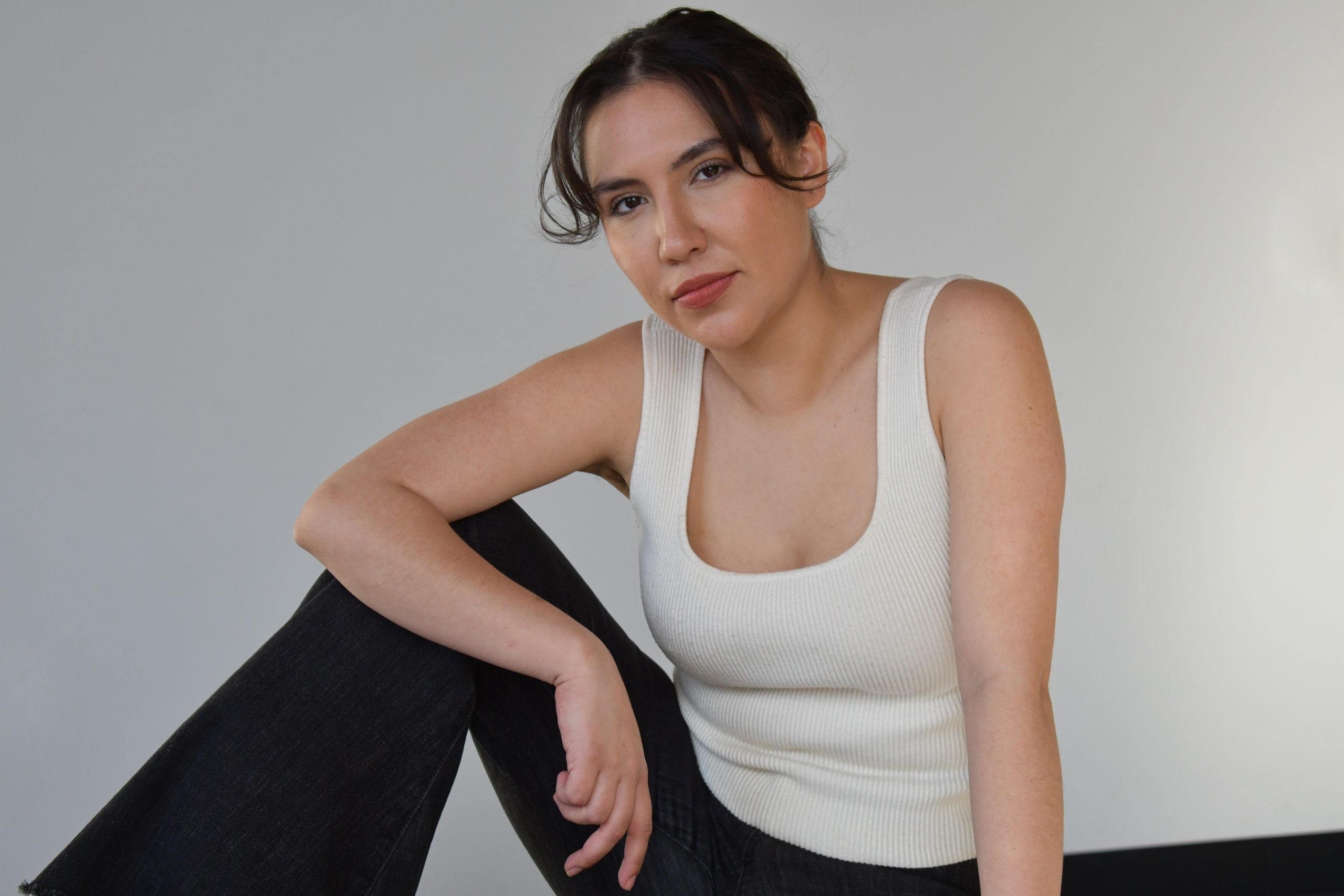
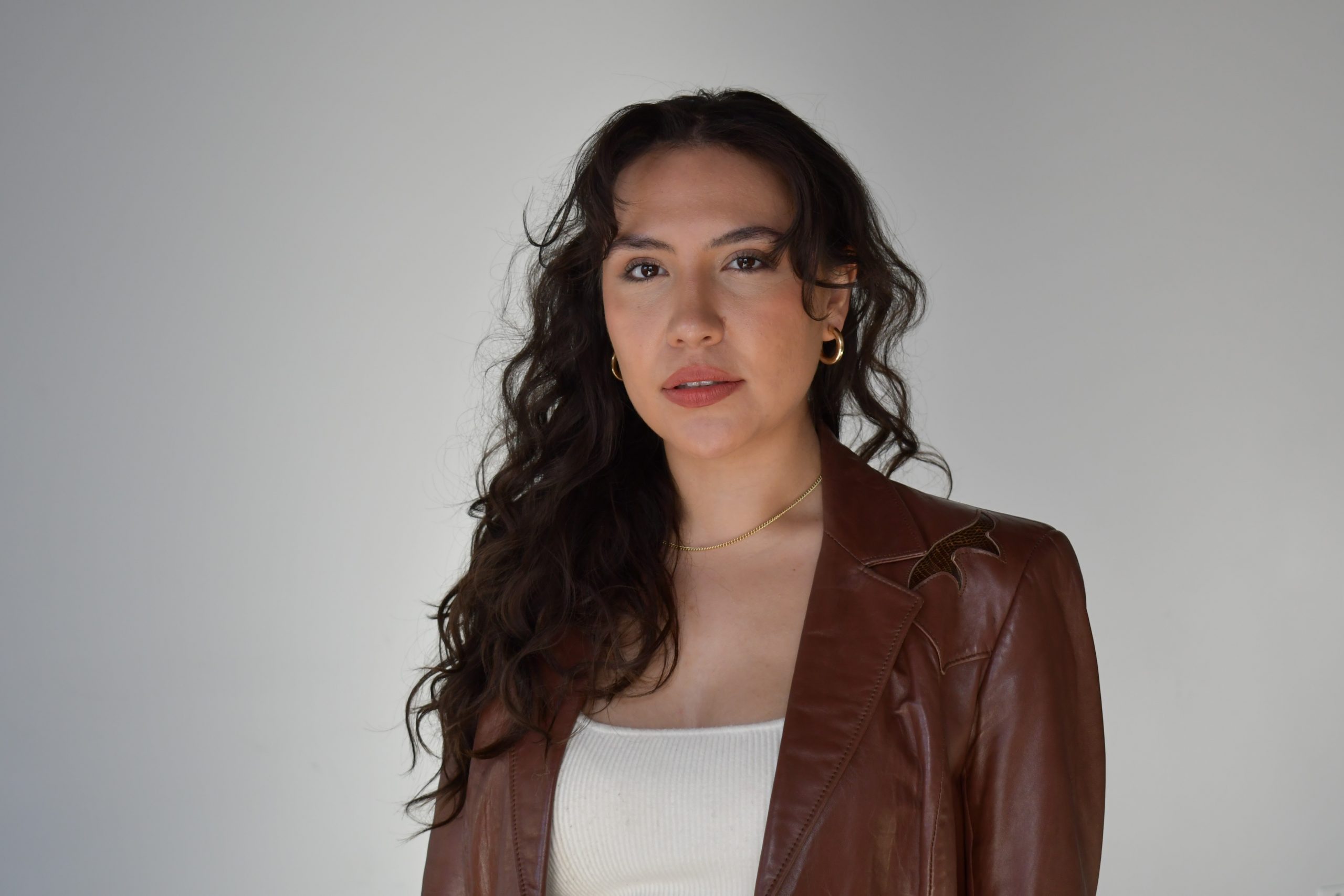
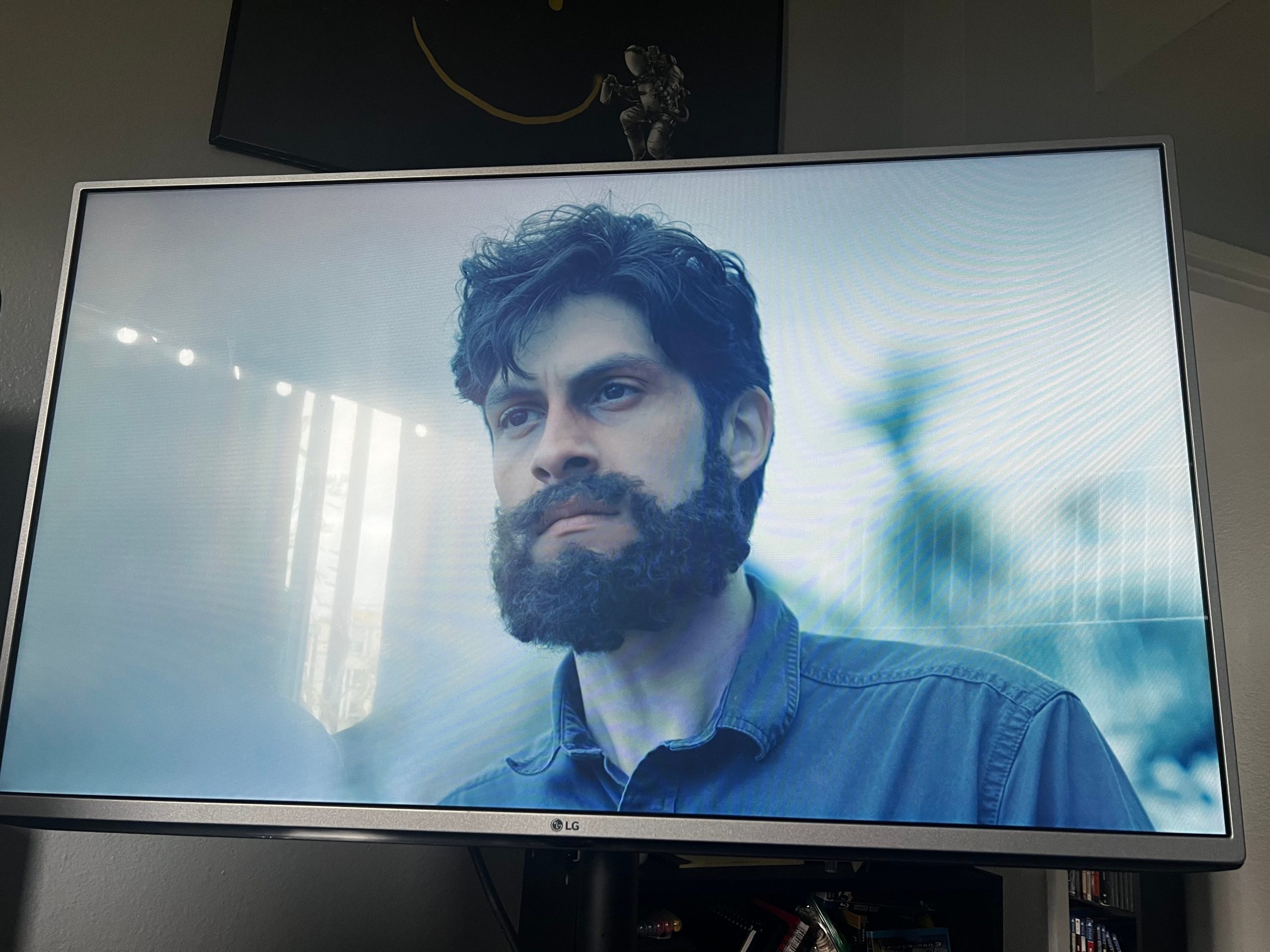
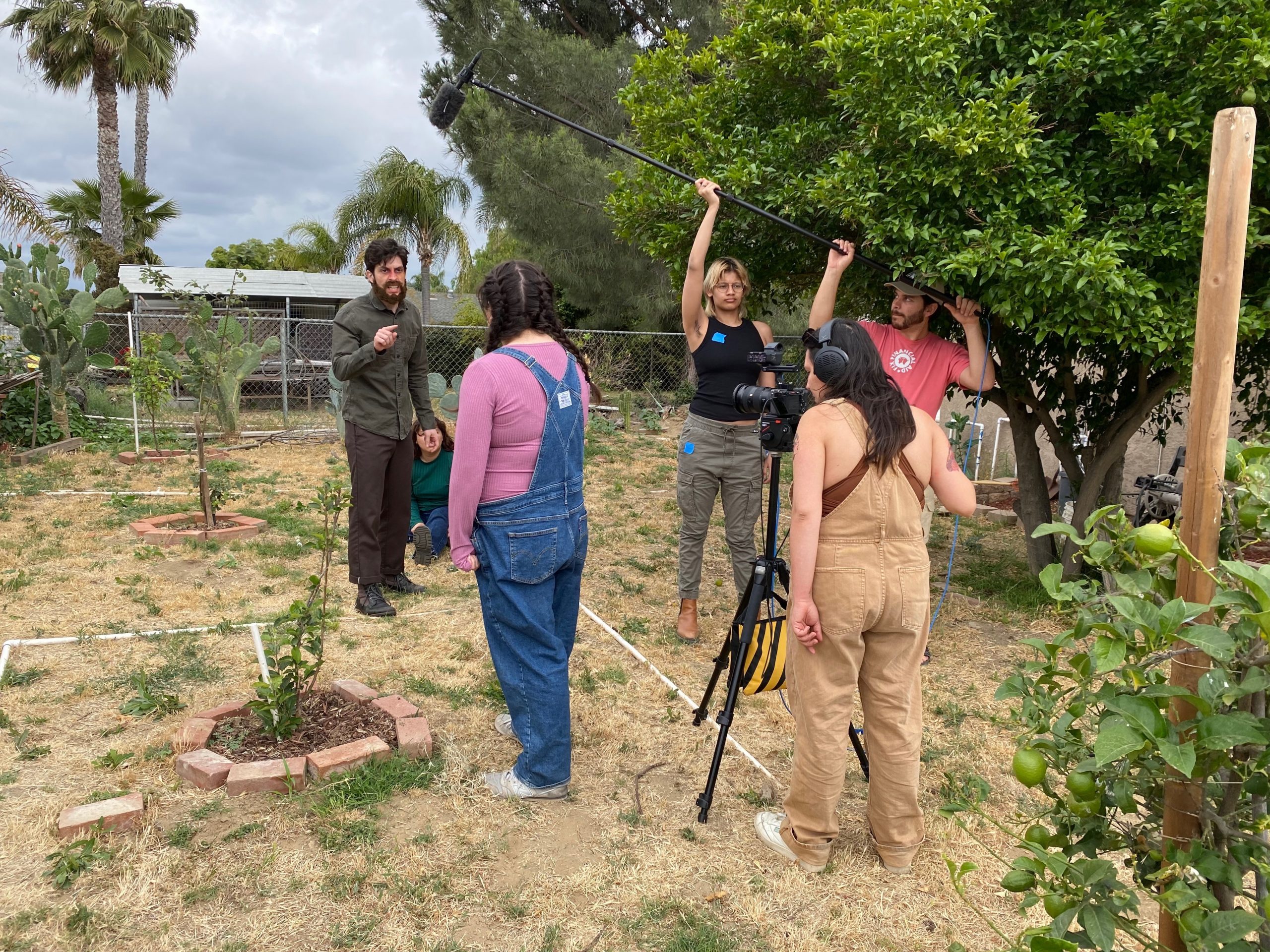
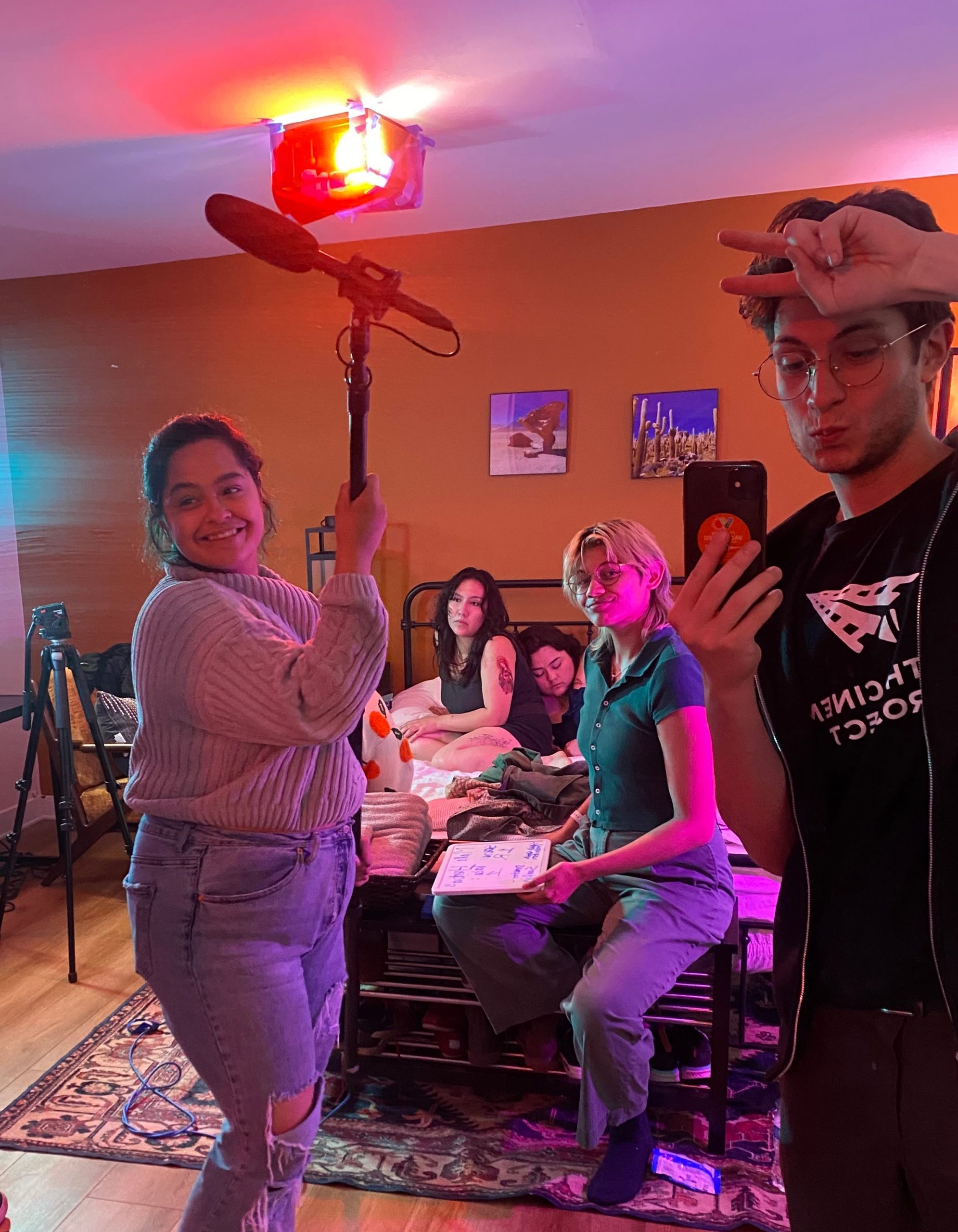
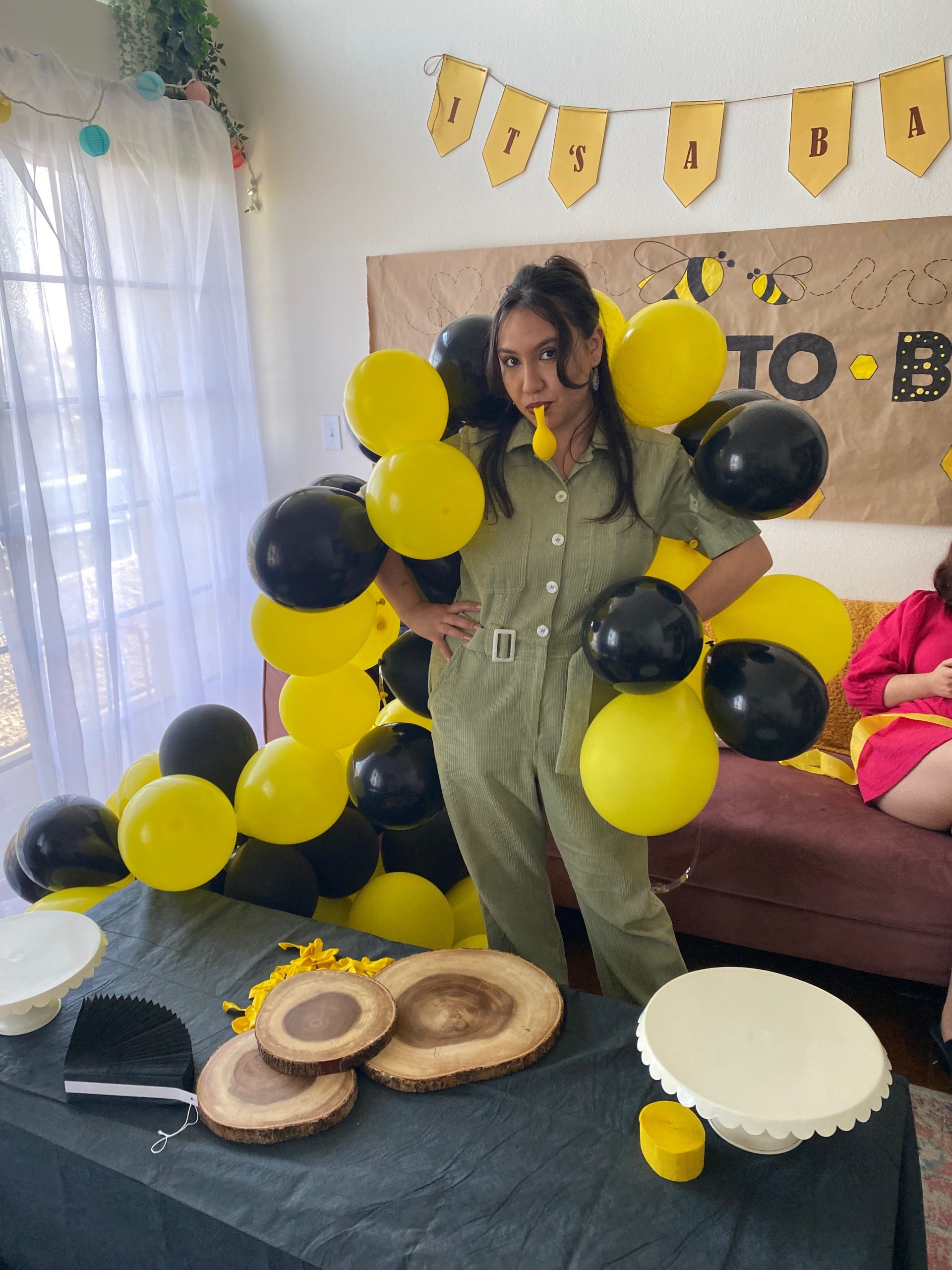
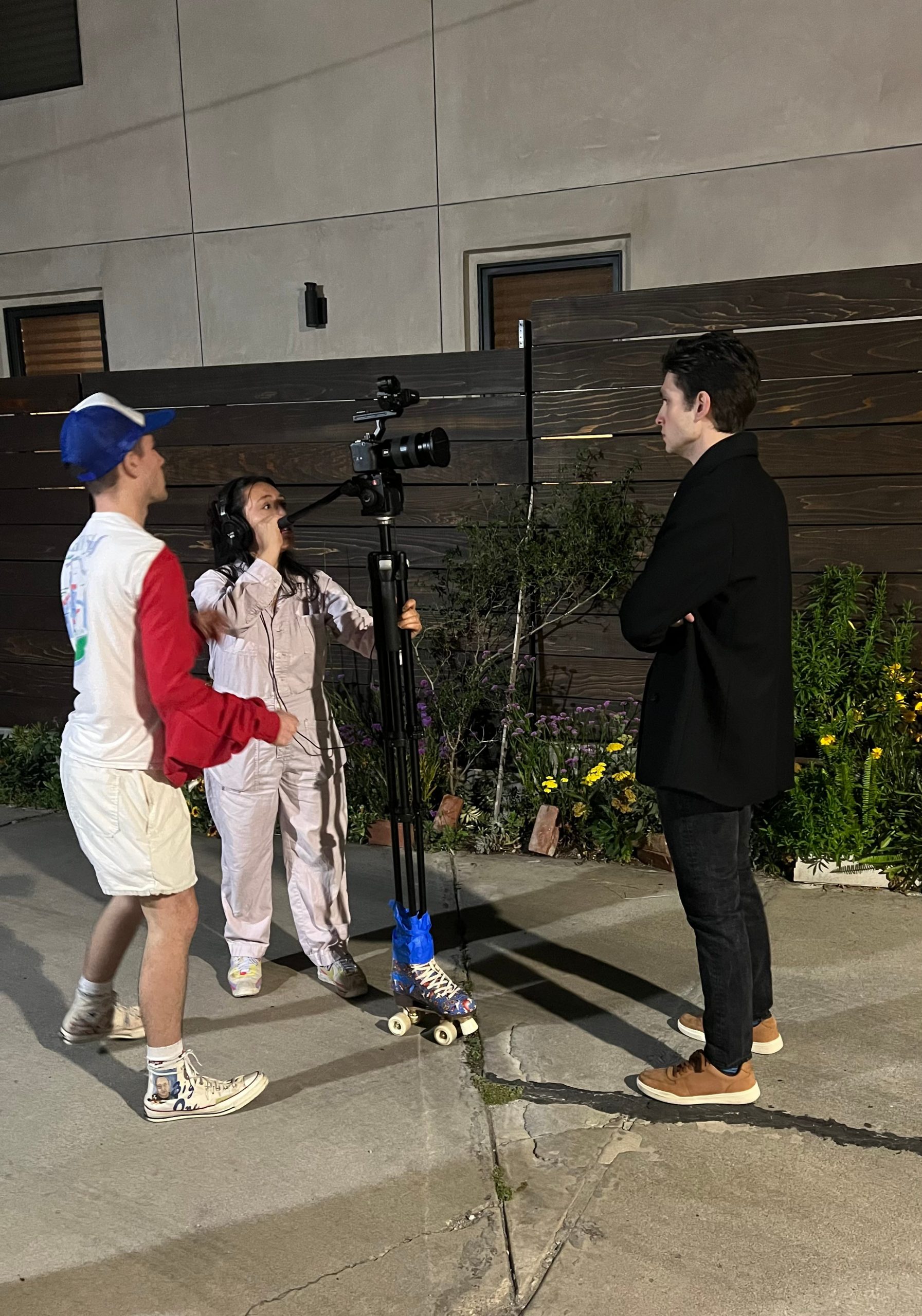
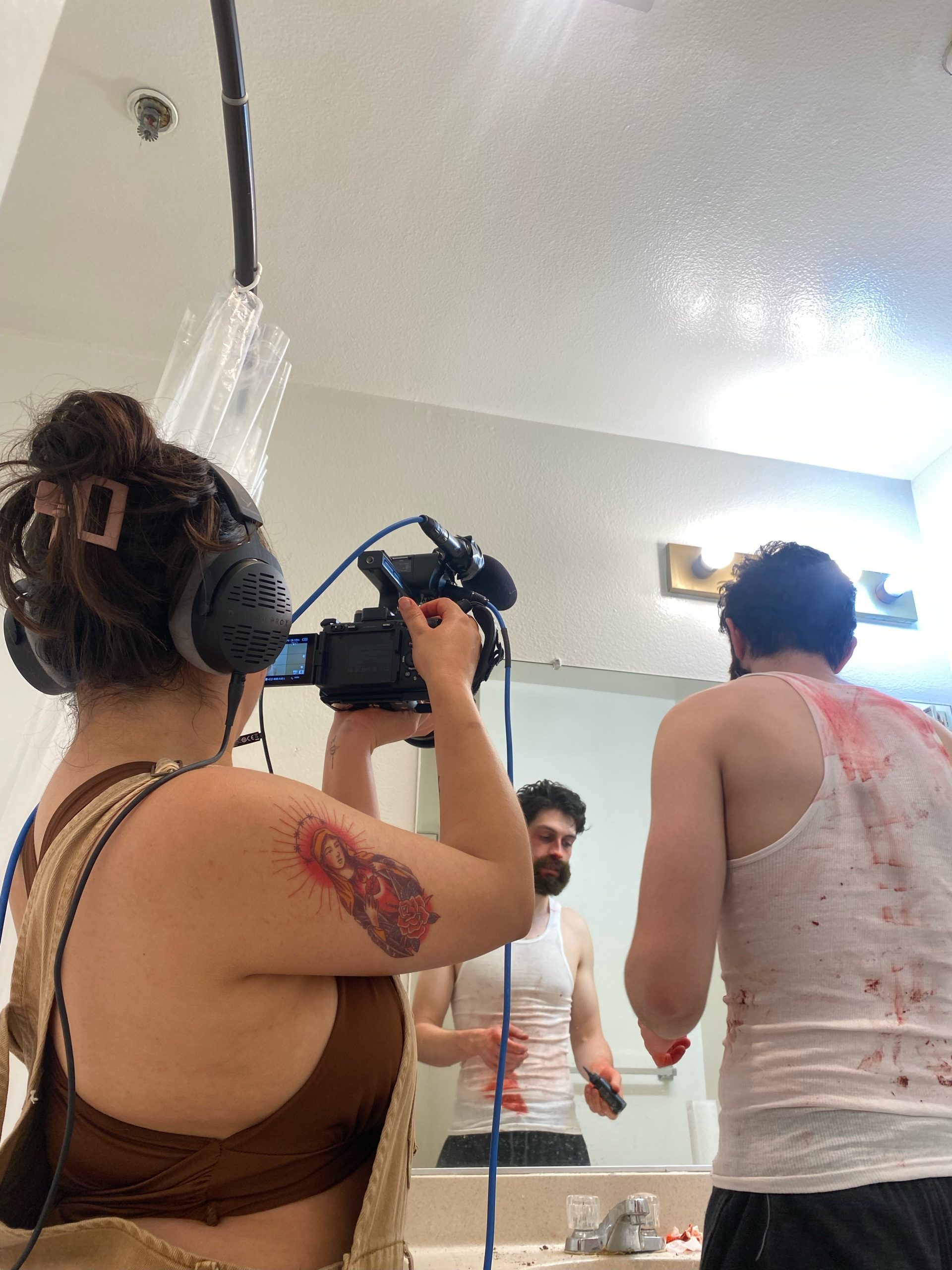
Image Credits
Austin Crowley
Tara Sissom Pitaro














